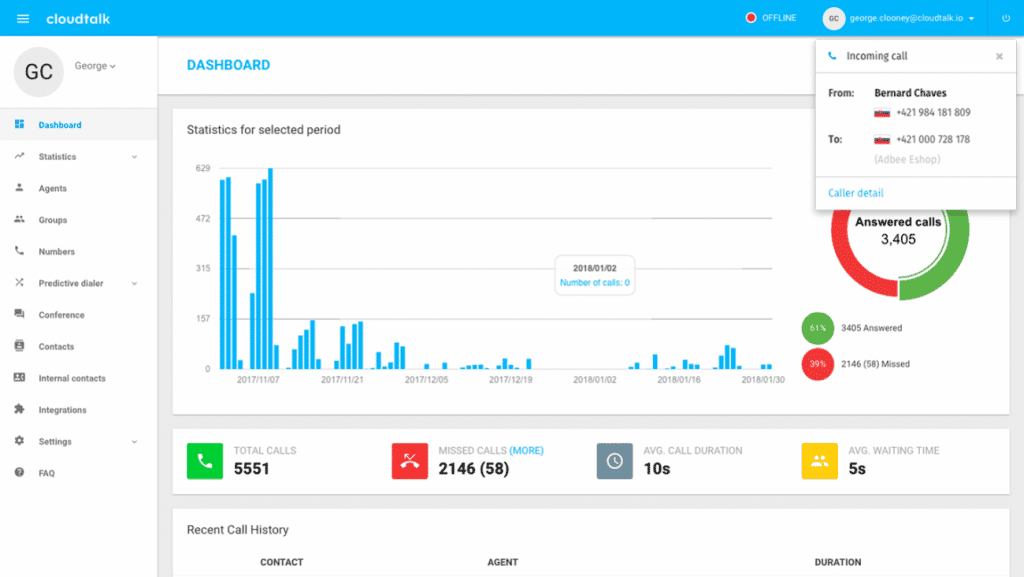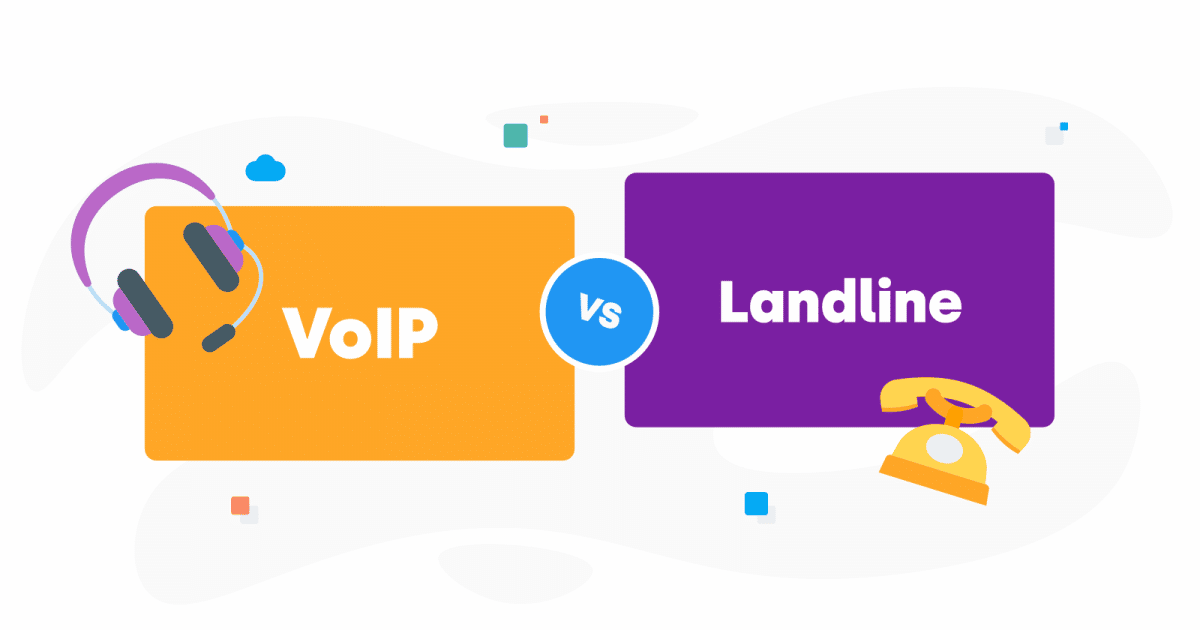
As the saying goes, what is good isn’t cheap and what is cheap isn’t good. In the case of VoIP, that doesn’t necessarily hold true though. Can VoIP be cheap and good at the same time? What should be taken into account when comparing VoIP options? That’s what we’re going to discuss.
Why should you even look for VoIP services?
In short: to save money, increase productivity, promote remote efficiency, and deliver flawless customer service.
VoIP has emerged as the perfect alternative to various phone systems, putting an end to expensive and unsustainable landlines.
Choose your perfect call center software
In the US alone, the number of active VoIP business lines increased from 6.2 to 41.6 millionbetween 2010 and 2018. In the 2019 GMI report, the VoIP market was estimated to grow from $20 billion in 2018 to $55 billion by 2025.
All of that before the COVID-19 pandemic hit and changed businesses forever.
With an increase in remote work, taking calls from anywhere in the world has become pretty much a necessity nowadays. Having VoIP makes this considerably easier and cost-effective, so it is not surprising that its popularity has grown over the last few years.
Nevertheless, VoIP offers a lot more than just that for companies that use it.
Here, you can watch our brief video on VoIP technology:
Benefits of VoIP for your business
VoIP can generate financial savings
With VoIP, you can reduce many operational costs. The numbers speak for themselves here.
Companies that switch to VoIP can save:
The prices of VoIP services may vary widely among providers. Some companies offer really good rates on long-distance calls, while others offer competitive fees for local and international services. You should consider which type of calls are ideal for your business when choosing your provider to capitalize on the savings.
However, one thing is for certain: VoIP is significantly cheaper than landline phones.
It can be extremely expensive to implement, run and maintain a landline phone system. What’s more, admins are needed within the company to handle them. Landlines are also pretty inflexible and very limited in terms of location, putting the possibility of remote work at risk.
Most VoIP business phone systems utilize infrastructure and hardware located in cloud data centers which is owned by your VoIP provider. That makes them more affordable to install, use, and manage than landlines.
VoIP can help you increase employee productivity
As well as saving money, VoIP can also boost the efficiency of your business.
By deploying a VoIP solution, the State of Utah saved hundreds of thousands of dollars. Using the automation features of VoIP services, they also saved $120k per year on labor costs associated with e.g. managing tickets.
What’s more, their IT team recovered 80 hours a week that they previously spent on solving office management issues.
When you compare this to the fact that the average working week in the US is 34.7 hours as of October 2021, you can clearly see that the team saved a time equivalent of two people working full-time.
And that’s a no-brainer.
VoIP systems take care of all the administration, so things run smoother while employees can concentrate on more important tasks and communicate better. Thanks to all of these factors, businesses that choose VoIP solutions are able to maximize their work time and gain benefits.
VoIP drives remote efficiency
VoIP does not only assist with remote working, but actually makes it possible for many people to do so. With VoIP, you can make and answer calls from anywhere in the world, unlike traditional landlines that require people to stay near their desks. The possibilities are endless.
Having employees working remotely can cut a range of your costs, from electricity to office maintenance. It isn’t just you who will benefit, though.
Employees won’t have to commute, saving both time and money. An example, perhaps? Each entry driving into the NYC Central Business District may soon cost up to $35. Avoiding such fees by working remotely can generate a few hundred dollars in savings for employees, as well as make them more motivated and productive when working from home.
Why not accomplish a few tasks at home rather than get stuck in traffic and struggle to find a parking spot?
Yet, despite all these benefits, VoIP may seem like a very expensive solution to many. In fact, there are cheap and free VoIP services that you can use in your business. But, are they worth it?
What to take into account when choosing a cheap VoIP provider?
You should consider a number of factors before selecting a cheap VoIP service.
Factor no. 1: the size of your business
The size of your company should be on the top of your list. Even if a particular provider claims the solution to be “for every business”, that’s not always the case.
It might be that some providers specialize in catering to the needs of small businesses, while others excel at offering services to large enterprises.
If you run a medium or large business, choosing a cheap VoIP provider could prove to be unsustainable because of a very simple rule:
As your business expands, the issues you face can become more complex and varied.
Most (although not all) cheap VoIP services come without constant, 24/7 technical support, fast responses, or efficient problem-solving.
If you run a small business, then it might make sense to choose a cheap VoIP service, particularly if you don’t intend to go big. However, if you choose VoIP for startup and plan on growing every day, it may be a good idea to search for a solution that offers scalability.
With this option, changes in your company’s needs and growth won’t force you to switch VoIP providers.
Factor no. 2: the costs of a cheap VoIP service
While you are looking for a cheap VoIP system, be sure to define what cheap means for you in advance.
Low price is a very relative term: for some companies, just a few dollars a month may be too much. Meanwhile, other businesses consider the hundreds of dollars price tag as affordable, as long as they are satisfied with the quality of their VoIP service.
To get a better understanding of what ‘cheap’ and ‘expensive’ mean when it comes to VoIP services, you should do some research and compare various plans.
The majority of VoIP providers offer a few subscription packages – the more expensive your plan, the more features you can access. You may not need all of them in the beginning, but scalability allows you to gradually change your plan over time. Take your business growth into consideration here.
Choosing a cheap VoIP service that either offers very expensive extensions and add-ons or doesn’t offer any at all, can harm your now-small but soon-to-be-medium business.
Factor no. 3: features you require from your VoIP service
One aspect you shouldn’t overlook is the list of necessary features that you expect a cheap VoIP provider to offer.
Some of the most popular tools offered by reliable VoIP services include IVR, call routing, messaging, caller ID, and call forwarding.

















